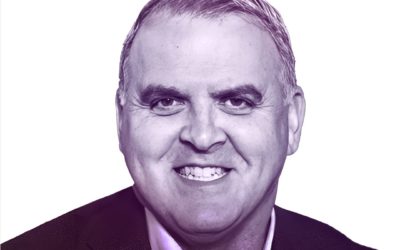“Take advantage of every opportunity that’s presented to you.”
Wayne Staub was appointed as the Vice President of Member Services for New Jersey Business and Industry Association (NJBIA) in June 2015. Since that time he has been promoted to his current title of Chief Business Relations Officer. Wayne is part of the executive team and works with the other Officers on short term and long term strategic planning. Wayne leads the Recruitment efforts and works closely in helping the development of Member Only Exclusive Benefits Programs and Partnerships. Wayne has a BS in Marketing from Seton Hall University and a Master’s Degree in Management and Leadership from Thomas Edison University.
Here are 4 ways NJBIA can support your business’ growth:
1. Seminars, webinars, and information about how to manage remote employees, and how to manage conflict between multi-generational employees.
2. Exposure for your business through a member marketplace.
3. Updates to your business on changing laws and how to address them.
4. Opportunities to participate in government advocacy through committees.
What are some available programs that NJBIA has?
Wayne: “We try to support small businesses in the back office areas that they may not have access to, including HR services, health benefits, payroll services, credit cards, shipping – all to help reduce the cost of doing business in New Jersey. We continue to be a leader in the advocacy space and trying to be the voice for businesses in New Jersey. There’s a lot of issues that are coming at us fast and furiously that impact business every day.”
What changes should be made in terms of workforce development?
Wayne: “There are a lot of opportunities out there. We do research that shows there are some middle-skill jobs right now in New Jersey that are unfilled that provide a great living, but they do require some sort of training, some sort of certification.”
Wayne: “Affordability is a big piece of it. There are a lot of people who are coming out of college with hundreds of thousand dollars of debt and not having a job to go into. We love the IT apprenticeship programs and we’ve been advocating for that for years. We’ve helped fund it through grants with the Department of Labor for years and years. We have manufacturers who tell us, ‘If you know how to weld, write down on a piece of paper what you want to make’ and they’ll pay you because that workforce is aging out and there’s not a pipeline of people underneath.”
Wayne: “We encourage our businesses to work with their local community colleges and technical schools to develop a partnership and a pipeline to help the business, but also to help the student walk into a real-time job as soon as they complete that training.”
How are employee benefits changing for the better?
Wayne: “There’s a lot of talk about developing programs to eliminate student debt as an example for an employee coming in as opposed to making them go right into a 401k program. Let’s get rid of the debt first and then start there.”
Wayne: “NJBIA provides seminars, webinars, information on: how do you manage remote employees, how do you manage conflict between multi-generational employees? We do a seminar every year and businesses walk out with an employee handbook. That is so important these days, again, with a lot of the laws and rules that are changing, which require a lot more reporting, which puts another burden on the small business. These are all things that we try to address and try to make sure our members are prepared when these changes happen.”
When someone becomes a NJBIA member, what can they take advantage of?
Wayne: “We have a member marketplace for members to find each other, and we’re developing a members’ buyers guide, which is going to give exposure to 25,000 people through our daily e-blast. We’re always looking for ways to provide that opportunity, whether it’s a table at one of our events. We have policy committees in every area: taxation, economic development, workforce development, technology, healthcare. Our members can participate on those committees and have a voice at what’s happening at the state level.”
Wayne: “We have a member community where our members talk amongst themselves for best practices. ‘I’m having this problem. What can I do?’ We do a lot to try to get members to talk to each other and work with each other as well.”


